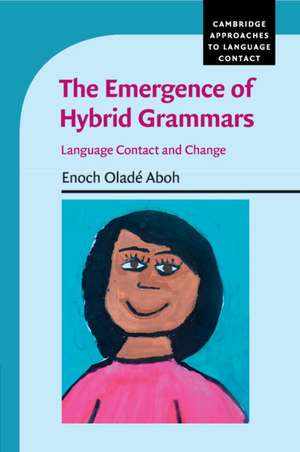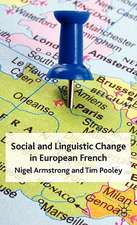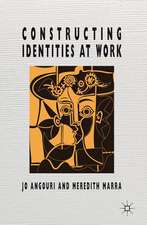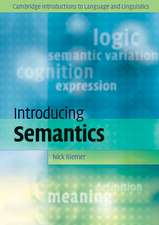The Emergence of Hybrid Grammars: Language Contact and Change: Cambridge Approaches to Language Contact
Autor Enoch Oladé Abohen Limba Engleză Paperback – 8 mai 2019
| Toate formatele și edițiile | Preț | Express |
|---|---|---|
| Paperback (1) | 320.75 lei 43-57 zile | |
| Cambridge University Press – 8 mai 2019 | 320.75 lei 43-57 zile | |
| Hardback (1) | 783.67 lei 43-57 zile | |
| Cambridge University Press – 26 aug 2015 | 783.67 lei 43-57 zile |
Din seria Cambridge Approaches to Language Contact
-
 Preț: 190.91 lei
Preț: 190.91 lei -
 Preț: 415.99 lei
Preț: 415.99 lei -
 Preț: 329.83 lei
Preț: 329.83 lei -
 Preț: 334.29 lei
Preț: 334.29 lei -
 Preț: 457.25 lei
Preț: 457.25 lei -
 Preț: 368.82 lei
Preț: 368.82 lei -
 Preț: 328.40 lei
Preț: 328.40 lei -
 Preț: 360.26 lei
Preț: 360.26 lei -
 Preț: 287.87 lei
Preț: 287.87 lei -
 Preț: 284.39 lei
Preț: 284.39 lei -
 Preț: 249.29 lei
Preț: 249.29 lei -
 Preț: 319.99 lei
Preț: 319.99 lei -
 Preț: 284.01 lei
Preț: 284.01 lei -
 Preț: 282.10 lei
Preț: 282.10 lei -
 Preț: 359.80 lei
Preț: 359.80 lei -
 Preț: 286.89 lei
Preț: 286.89 lei -
 Preț: 283.79 lei
Preț: 283.79 lei -
 Preț: 215.06 lei
Preț: 215.06 lei - 14%
 Preț: 723.09 lei
Preț: 723.09 lei -
 Preț: 186.73 lei
Preț: 186.73 lei - 14%
 Preț: 752.08 lei
Preț: 752.08 lei
Preț: 320.75 lei
Nou
Puncte Express: 481
Preț estimativ în valută:
61.38€ • 64.24$ • 51.08£
61.38€ • 64.24$ • 51.08£
Carte tipărită la comandă
Livrare economică 31 martie-14 aprilie
Preluare comenzi: 021 569.72.76
Specificații
ISBN-13: 9780521150224
ISBN-10: 0521150221
Pagini: 364
Ilustrații: 4 b/w illus. 3 maps 19 tables
Dimensiuni: 153 x 230 x 23 mm
Greutate: 0.49 kg
Editura: Cambridge University Press
Colecția Cambridge University Press
Seria Cambridge Approaches to Language Contact
Locul publicării:Cambridge, United Kingdom
ISBN-10: 0521150221
Pagini: 364
Ilustrații: 4 b/w illus. 3 maps 19 tables
Dimensiuni: 153 x 230 x 23 mm
Greutate: 0.49 kg
Editura: Cambridge University Press
Colecția Cambridge University Press
Seria Cambridge Approaches to Language Contact
Locul publicării:Cambridge, United Kingdom
Cuprins
Foreword Salikoko S. Mufwene; 1. Introduction; 2. The agents of creole formation: geopolitics and cultural aspects of the Slave Coast; 3. The emergence of creoles: a review of some current hypotheses; 4. Competition and selection; 5. The role of vulnerable interfaces in language change: the case of the D-system; 6. The emergence of the clause left periphery; 7. The emergence of serial verb constructions; 8. Conclusions: some final remarks on hybrid grammars, the creole prototype, and language acquisition and change.
Recenzii
'Enoch Oladé Aboh's book is a tour de force as it weaves together painstakingly documented history, novel and reliable empirical bases and elegant theoretical analyses in order to draw a fascinating and often profoundly satisfying scenario of creole formation. Such a scenario will enliven and enlighten current debates in creole studies. Aboh raises the bar by many notches - way above the quality level of most other hypotheses on the market. This book is a delight as it takes us up close and personal to the theater of creole formation, from Africa to the Americas … original and insightful … This book is a refreshing contribution to creole studies and beyond, with many enriching insights for linguistic theory and for theories of language contact and language change writ large. Bravo!' Michel DeGraff, Massachusetts Institute of Technology
'In this extremely well-argued volume Aboh does two things. He argues convincingly against the imperfect second-language learning hypothesis of creole formation. He then provides a host of arguments for the competition-and-selection hypothesis with the help of creole languages, Saramaccan and Haitian, colonial languages, French and English, and African Gbe languages.' Norval Smith, Universiteit van Amsterdam
'Aboh offers compelling yet challenging arguments for the non-exceptionalism of creoles and presents the most vigorous defense of the competition and selection hypothesis.' James Essegbey, University of Florida
'This book is a major contribution to creolistics and language change in general. Its main strength is the tight link between socio-historical analysis and a linguistic theory of the emergence of creoles. The historical part presented in chapter 2 is undoubtedly an important contribution to the field. The number and quality of the quoted historical sources are impressive. [Aboh] knows West Africa and he is able to interpret the historical sources in a way that makes sense to the reader. Undoubtedly, being a speaker of (some) Gbe languages helped the author in his comparison of Gbe and Haitian/Saramaccan. There are plenty of examples and the analyses are very precise, up to the standards expected for the study of better-known languages such as English or French. The presentation of the theory (Feature Pool Hypothesis) is clear and precise and the contrast with other competing theories is grounded.' Emmanuel Schang, Linguist List
'… this book's central ideas should be enthusiastically received by the contact linguistics community, and are likely to be both implemented and elaborated upon with rewarding results … the author brings detailed understanding and penetrating analysis … I believe readers concerned with the question of how contact languages come to be will find this volume rewards a close reading, and will come away with numerous ideas for their own research …' David Douglas Robertson, LINGUIST List
'In this extremely well-argued volume Aboh does two things. He argues convincingly against the imperfect second-language learning hypothesis of creole formation. He then provides a host of arguments for the competition-and-selection hypothesis with the help of creole languages, Saramaccan and Haitian, colonial languages, French and English, and African Gbe languages.' Norval Smith, Universiteit van Amsterdam
'Aboh offers compelling yet challenging arguments for the non-exceptionalism of creoles and presents the most vigorous defense of the competition and selection hypothesis.' James Essegbey, University of Florida
'This book is a major contribution to creolistics and language change in general. Its main strength is the tight link between socio-historical analysis and a linguistic theory of the emergence of creoles. The historical part presented in chapter 2 is undoubtedly an important contribution to the field. The number and quality of the quoted historical sources are impressive. [Aboh] knows West Africa and he is able to interpret the historical sources in a way that makes sense to the reader. Undoubtedly, being a speaker of (some) Gbe languages helped the author in his comparison of Gbe and Haitian/Saramaccan. There are plenty of examples and the analyses are very precise, up to the standards expected for the study of better-known languages such as English or French. The presentation of the theory (Feature Pool Hypothesis) is clear and precise and the contrast with other competing theories is grounded.' Emmanuel Schang, Linguist List
'… this book's central ideas should be enthusiastically received by the contact linguistics community, and are likely to be both implemented and elaborated upon with rewarding results … the author brings detailed understanding and penetrating analysis … I believe readers concerned with the question of how contact languages come to be will find this volume rewards a close reading, and will come away with numerous ideas for their own research …' David Douglas Robertson, LINGUIST List
Notă biografică
Descriere
This account of language acquisition in a multilingual context explains how hybrid grammars develop and can result in language change.
















